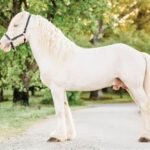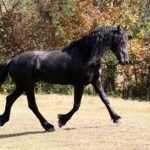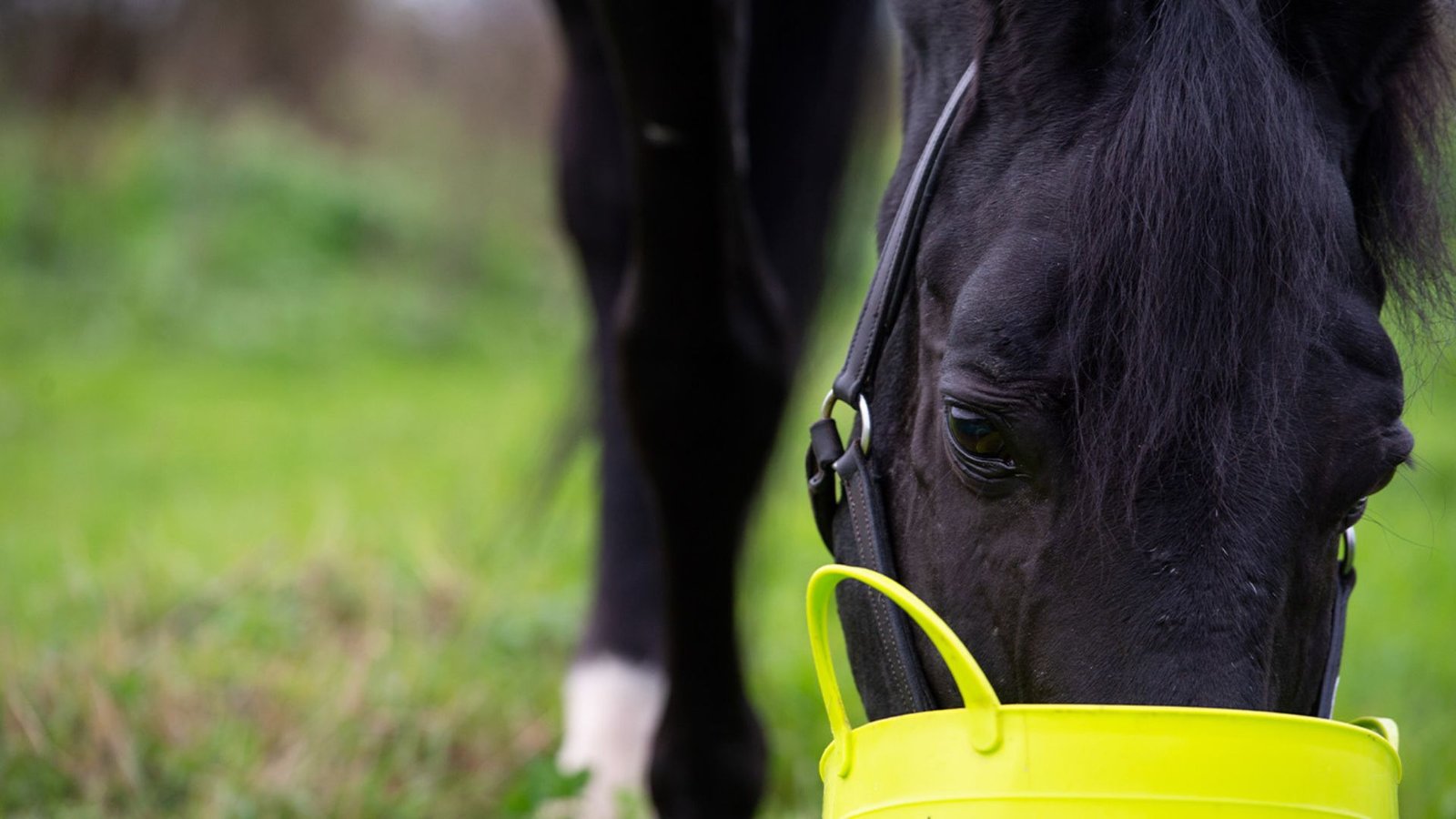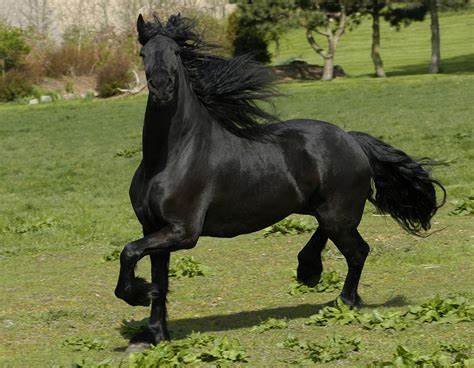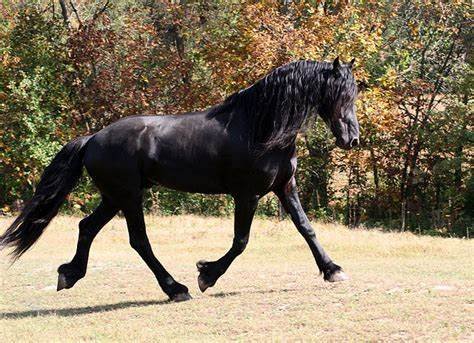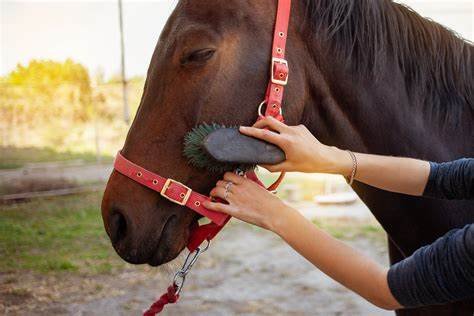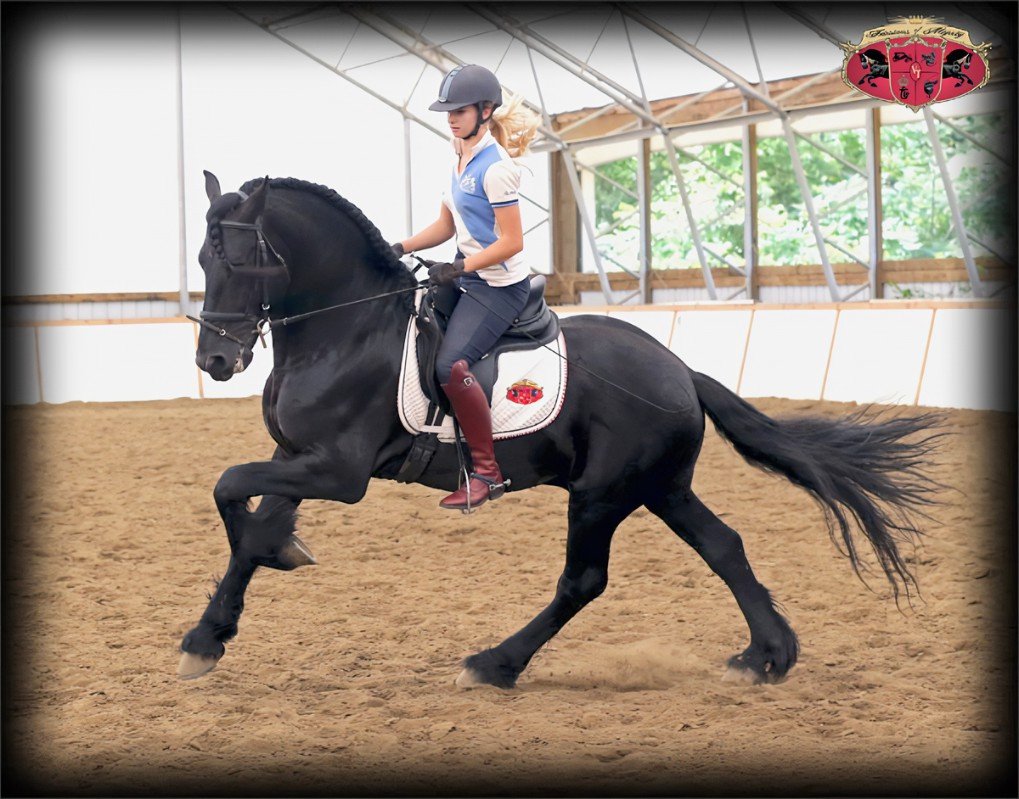Friesian horses are known for their striking appearance, with their long, flowing manes and tails, as well as their graceful movement. These horses, originating from Friesland in the Netherlands, are prized for their versatility, being used in dressage, driving, and even working on farms. To maintain their health and performance, Friesians require a well-balanced diet that meets their specific nutritional needs. In this article, we’ll discuss the key aspects of feeding Friesians, from their calorie requirements to the best types of food for these magnificent horses.
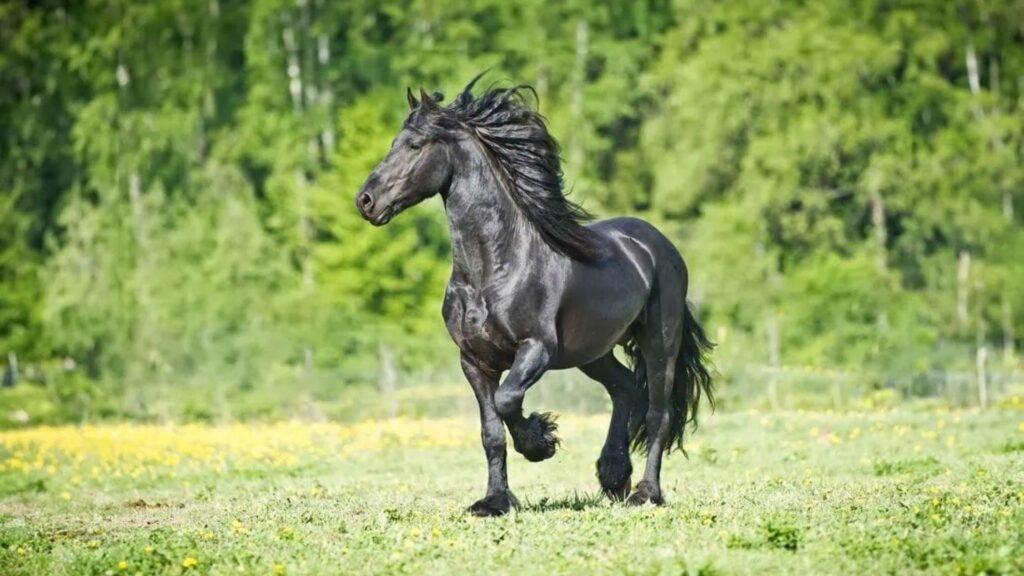
The Basics of a Friesian’s Diet
Friesians, like all horses, are herbivores and need a diet rich in fiber. Their digestive system is designed to process forage, such as hay and grass. The primary food source for Friesians should be high-quality grass or hay, as it provides the necessary fiber for their digestive health. A horse’s stomach and intestines work best when they are consistently fed fibrous food throughout the day.
For Friesians, a combination of roughage and a balanced concentrate diet (grain or pellets) is often necessary to meet their energy needs, especially if they are involved in regular work, training, or competition. The right balance of forage and concentrates will depend on the Friesian’s activity level, age, and overall health.
Caloric Requirements for Friesians
Friesian horses are large and muscular, and they tend to have higher caloric needs compared to smaller breeds. On average, an adult Friesian horse requires around 1.5 to 2% of their body weight in food each day, which includes both forage and concentrates. For example, a 1,200-pound Friesian would require between 18 to 24 pounds of food daily.
If the Friesian is highly active, like in training or performance, their calorie intake will need to be higher to sustain their energy levels. Workload and the intensity of exercise will influence their dietary requirements, so owners should adjust their feeding regimen based on their horse’s activity levels.
Key Nutrients for Friesian Horses
Feeding Friesians requires understanding the essential nutrients that should be included in their diet:
- Protein: Protein is essential for muscle development and repair, particularly for Friesians who engage in intensive physical activities. The protein needs for Friesians typically range from 10-14% of their daily intake, depending on their age and activity level. Protein-rich feeds like alfalfa hay or specially formulated horse pellets can help meet this requirement.
- Carbohydrates: Carbs, primarily in the form of fiber, are the main energy source for Friesians. Fibrous food, such as hay and pasture grass, should make up the bulk of their diet. For Friesians involved in heavy work, some additional grains or oats can be included to provide extra energy.
- Fats: Fats, such as vegetable oils, can be added to the diet for Friesians who require additional calories for energy. Fats provide concentrated energy and can help improve coat condition and overall health.
- Vitamins and Minerals: Like all horses, Friesians require a balance of essential vitamins and minerals. They particularly need calcium and phosphorus for bone health and muscle function. A mineral supplement or fortified feed may be necessary to fill any gaps in their diet, especially for Friesians kept in environments where access to fresh pasture is limited.
- Water: Fresh, clean water should always be available. Horses are particularly vulnerable to dehydration, which can lead to serious health issues. A Friesian horse can drink between 5 to 10 gallons of water a day, depending on factors such as temperature and activity level.
Types of Feed for Friesian Horses
- Hay and Grass: High-quality hay and fresh pasture should form the foundation of the Friesian’s diet. Grass and hay provide essential fiber and should be available to the horse at all times. Make sure the hay is free from mold or dust, as these can cause respiratory issues in horses.
- Concentrates (Grains and Pellets): For Friesians with high energy demands, such as those in training or competition, concentrates like oats or specially formulated horse pellets can provide the necessary calories. These should be fed in appropriate amounts to avoid overfeeding, which can lead to obesity or other health problems.
- Supplements: Friesians may benefit from nutritional supplements, especially if they are involved in rigorous physical activity. Common supplements include joint support formulas, which are particularly important for large breeds, and electrolyte replacements to help them recover from heavy work.
- Salt and Electrolytes: If a Friesian is involved in heavy exercise or is sweating excessively, adding salt or electrolytes to their diet can help replace lost minerals and prevent dehydration. Salt blocks or added minerals in their grain can help balance their needs.
Conclusion
Feeding Friesian horses requires careful consideration of their specific nutritional needs. Providing a well-balanced diet with high-quality forage, an appropriate amount of concentrates, and necessary supplements is crucial for their health and performance. Regular feeding schedules, access to clean water, and attention to their caloric requirements will help ensure that Friesians stay strong, healthy, and energetic throughout their lives. By understanding their dietary needs and making informed choices, you can help your Friesian thrive in any environment.



